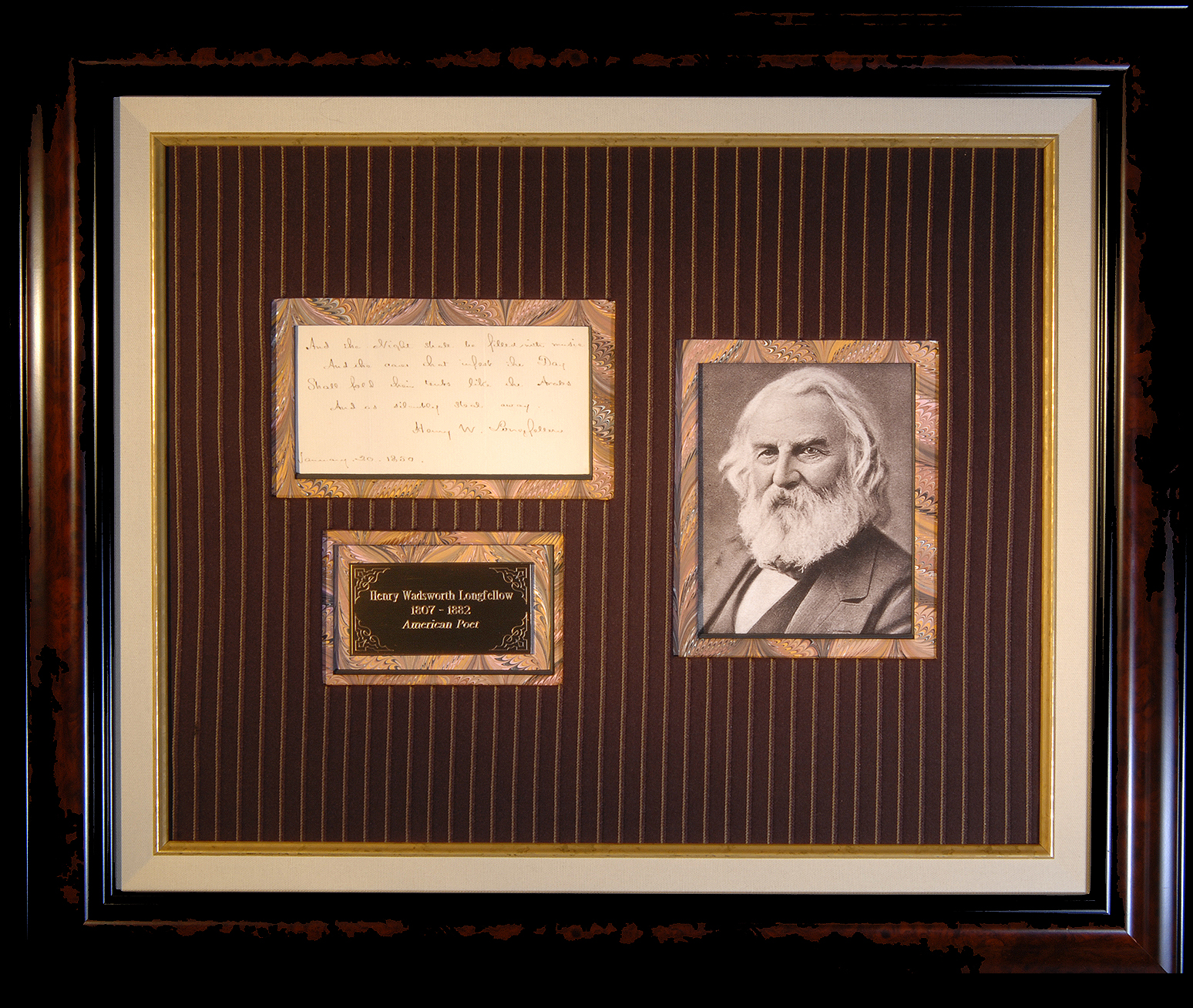Henry W. Longfellow
Henry W. Longfellow
Autograph Quotation Signed - 1850
[if gte mso 9]>
[if gte mso 10]>
Beautiful quotation, in Longfellow’s own hand and signed and dated January 20, 1850, is the final stanza in his poem The Day is Done, which reads:
And the night shall be filled with music
And the cares, that infest the day,
Shall fold their tents, like the Arabs,
And as silently steal away.
Historical Context
In his famous essay “The Poet,” Ralph Waldo Emerson claims that men who are skilled in the use of words are not true poets, saying, “…we do not speak now of men of poetical talents, or of industry and skill in metre, but of the true poet”. And slightly later, he adds, “For it is not metres, but a metre-making argument, that makes a poem”. According to Emerson, a poet who values form over thought is not a poet at all, but rather merely a skilled manipulator of words. For him, a poet must be the articulator of some genuine thought or argument; it does not suffice to merely create a poem solely on the sound and effect of words.
In 1844, the same year that Emerson published his essay, Henry Wadsworth Longfellow published “The Day is Done,” a poem that argues directly against the point made in Emerson’s “The Poet.” Longfellow is hyperaware of the meter, rhyme, word choice, and overall sound of his poem; in fact, those elements are what make the poem a cohesive and successful piece of work. As a result of Longfellow’s attention to the effect of the words and seeming disregard for what Emerson would call a “metre-making argument,” “The Day is Done” serves as a counter-argument to Emerson’s initial claim.
At Longfellow’s funeral, his friend Emerson called him “a sweet and beautiful soul”. In reality, Longfellow’s life was much more difficult than was assumed. He suffered from neuralgia, causing constant pain, and he also had poor eyesight. He wrote to friend Charles Sumner: “I do not believe anyone can be perfectly well, who has a brain and a heart”.
This original handwritten, signed and dated poem has been specially matted in a brown pin-striped fabric not unlike that which Longfellow likely wore in a suit of the period. Each window element is enhanced with Italian hand-marbled paper in a brown, salmon and cocoa peacock motif. The wooden frame is done in a black and brown tortoise shell finish with a rich gold fillet bordering the entire display.
If kept out of direct sunlight and maintained in a clean, temperate environment, this beautiful heirloom will provide lasting enjoyment for generations.
HENRY WADSWORTH LONGFELLOW (1807-1882) was an American educator and poet whose works include such classics as “Paul Revere’s Ride” and “The Song of Hiawatha.”
Longfellow predominantly wrote lyric poetry, known for its musicality, which often presented stories of mythology and legend. He became the most popular American poet of his day and also had success overseas.
Over the years, Longfellow’s personality had become part of his reputation. He had been presented as a gentle, placid, poetic soul: an image perpetuated by his brother Samuel Longfellow, who wrote an early biography which specifically emphasized these points. As James Russell Lowell said, Longfellow had an “absolute sweetness, simplicity, and modesty”.
All Vintage Memorabilia autographs are unconditionally guaranteed to be genuine. This guarantee applies to refund of the purchase price, and is without time limit to the original purchaser. A written and signed Guarantee to that effect accompanies each item we sell.

